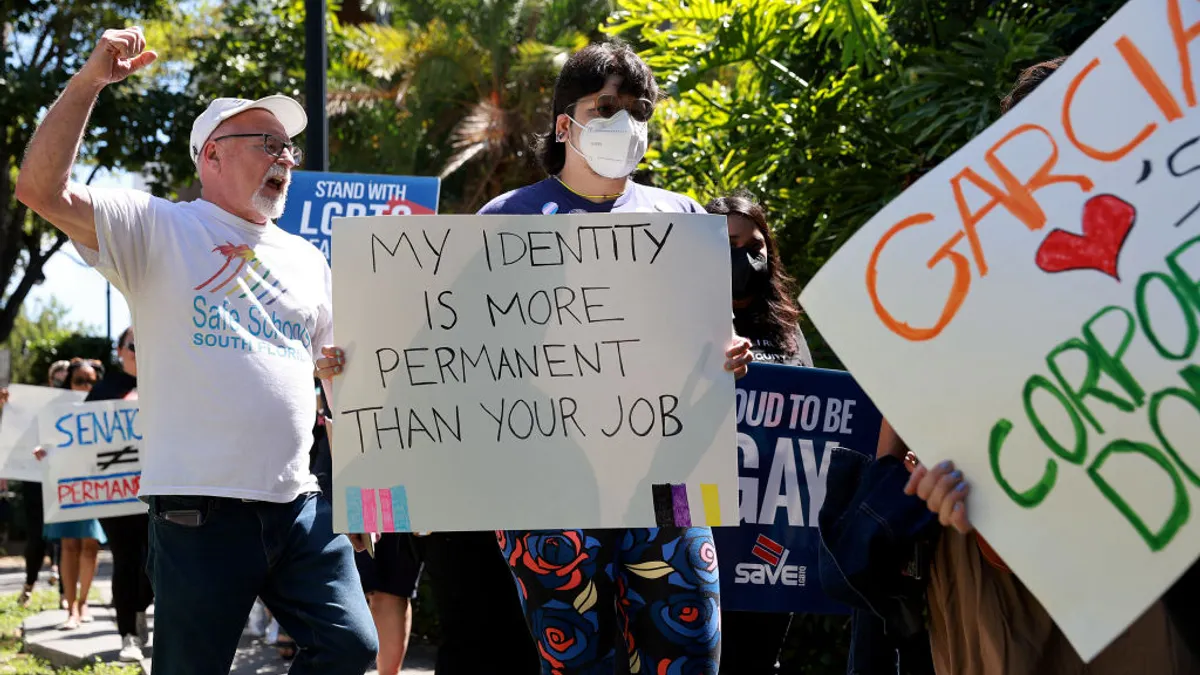Training employees is an expensive proposition. A 2016 Training Benchmarking Study found that for large companies (10,000+ employees), annual training budgets are about $13 million. Mid-sized employers (1,000+) budget about $3 million and small companies spend about $290,000. And that doesn't factor in the hidden costs of training: time taken away from job duties, equipment and more.
For many companies looking to develop staff and upskill in response to talent gaps, the investment in learning can be significant. When a company invests in employee training, what happens if they quit before the employer sees any benefit from the training? Are companies allowed to recover the investment they made?
Case law
The answer is a complex one, and case law varies. In USS POSCO Industries v. Floyd Case, an employer was awarded a portion of training costs — $28,000 — and another $80,000 in legal fees. The case involved an entry-laborer who entered into a voluntary training program to advance his career. He enrolled in company paid-training that involved 135 weeks of instruction, 90 weeks of on-the-job training, and 45 weeks of classroom studies.
The employee signed an agreement promising to refund the employer $30,000 if he was fired for cause or resigned within 30 months of the training, less than $1,000 per month of subsequent service. He resigned and refused to pay the employer back, so it sued him. He argued that both state law and the Fair Labor Standards Act (FLSA) protected him, but the court was not persuaded.
In Jeremy Sanders, Appellant, v. Future Com, LTD., decided earlier this year, an employer successfully enforced an agreement in an offer letter that the employee was required to reimburse it for training costs if he left the company within one year of completing training. The employee argued that the repayment provision of the offer letter was not part of his employment contract, but the court concluded that, at least in Texas, it was. It awarded the employer $38,480.35 in damages and $34,000 in attorney's fees.
Courts have gone the other way, as well. In Los Angeles, a 4th District Court of Appeal panel issued an unpublished opinion in 2015 that former police officers who left the LAPD could not be compelled to reimburse the city for their training. Because the city instituted a training program more extensive and costlier than minimum certification, it became an employer-mandated expense the City, not officers, should carry, the panel concluded. The reimbursement contract was deemed unenforceable.
A judgment call
Employers will ultimately have to decide for themselves — but with the help of experienced counsel — whether to adopt training reimbursement requirements.
"Generally speaking, it is unusual and very difficult to recoup the training costs expended on behalf of an employee who departs the company shortly after participating in the training session," Don Schroeder, partner at Foley & Lardner, said, warning that it would be an uphill battle for most employers.
In most cases, employers do not pursue any recovery, mainly because state laws usually do not allow for any set-off for any final wages that may be due to an employee, Schroeder explained.
"The only preventative way to ensure compliance with wage and hour laws is to either insert a specific provision in an offer letter (with an acknowledgement from the employee) which requires repayment of the training costs in an amount certain if the employee leaves the company within a certain time period," Schroeder said, "or create a one page agreement at the time the employee participates in the training program which contains the repayment obligation and 'set-off' for any final compensation."
But, at the end of the day, it really depends on the level of the employee, the true out of pocket costs for the training, the type of training program, and a judgment whether attempts to recoup those costs will impact employee morale, he said.
That "type of training" factor may be of particular importance, says Sam Caucci, CEO and founder of 1Huddle, a workforce training platform. Especially if an employee earns certifications that may be useful elsewhere, it may be reasonable to contract for reimbursement. But the agreements must be worded properly to survive the courts. "It can’t be seen to penalize the employee, only to reimburse the employer," he noted.
But again, employers should consult with counsel before doing so, as requirements may vary across the country.
Key requirements
If you're going to attempt to adopt reimbursement agreements, there are a few important things to remember.
Voluntary. First, training for which you're seeking reimbursement may need to be voluntary. When employees are required to take the training as a condition of employment, the courts have largely held costs are not reimbursable. Likewise, the addition of a non-compete can work against an employer, as an employee wouldn't be able to use the training anywhere else.
Up-front agreement. Whether it’s a current employee or a potential new hire, any training reimbursement agreement should be made prior to the employee beginning the program. You may want to advise the employee that the agreement establishes a contract, and encourage them to have their own counsel review the document before it is signed.
Details. The agreement should specify the costs for training, how long the training will last, how long the employee is required to stay on the job following the training period, and what the repayment requirement would be. A pro-rated scale of repayment based on the length of employment following training is common.
Compliance with federal, state and local laws. Employers must ensure that reimbursements don't cause minimum wage or overtime violations. Even for exempt employees, "improper deductions" can undo their exemption, putting the employer on the hook for back wages. Employers also must consider any applicable collective bargaining agreements.
The verdict
In reality, many employers won't actually attempt to recover training costs from an employee. Instead, the agreement acts as a screening tool, Caucci noted. The hope is that only serious, committed candidates will agree to it.
As the court cases noted above illustrate, recovery is an uphill battle. But, as they also demonstrate, these agreements are sometimes enforceable. Employers will have to determine whether the costs to litigate, and the possible fallout in employee morale, are worth the recovery.
Correction: An earlier version of this story misidentified the 4th District Court of Appeal.



















